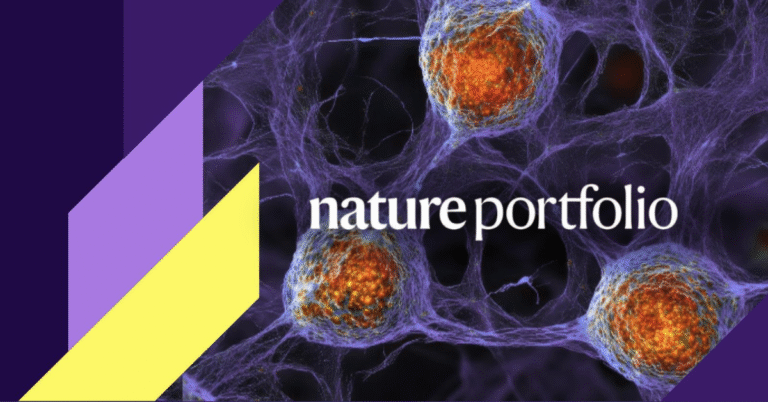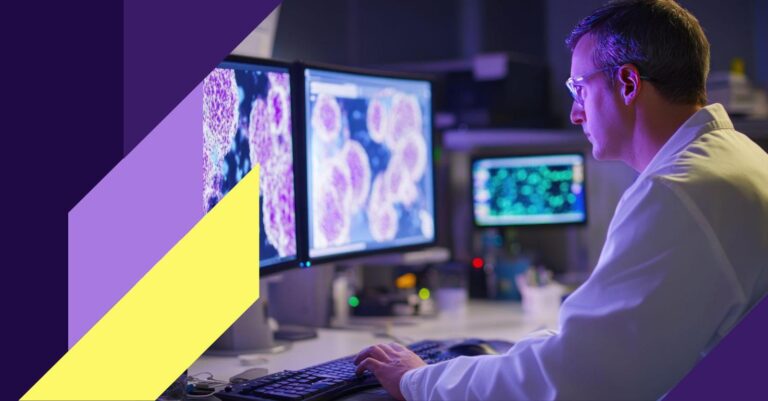Summary: This blog explores how advancements in AI, including emerging technologies and tools, are transforming drug discovery, accelerating development, improving clinical trial success rates, and reshaping the pharmaceutical industry’s business model.
A recent report from Mitsui & Co. Global Strategic Studies Institute, published in November 2024 by Mika Kinoshita, highlights the transformational opportunities for AI and medical data in the pharmaceutical industry. According to the author, the pharmaceutical industry is undergoing a major shift driven by AI and medical big data, which are revolutionizing drug discovery and development by increasing efficiency, reducing costs, and improving success rates. A more recent 2024 report estimates that AI integration could shorten drug development timelines by four years and save $26 billion.
AI is accelerating drug discovery by rapidly identifying disease targets and screening billions of compounds, cutting development time and costs. At the same time, medical big data (including diagnostic and genomic data) is enabling personalized medicine, improving disease understanding, and increasing the success rates of clinical trials. As an example, AI-assisted drug discovery programs show higher success rates in the clinical stage (80-90% for Phase I and 40% for Phase II), far exceeding traditional success rates of 54% and 34%, respectively.
Based on this evidence, pharmaceutical companies are increasingly partnering with AI contract research organizations (CROs) to enhance R&D, with deals in AI-driven drug discovery surging 14-fold from 2019 to 2023 (reaching $12.8 billion in transactions). This trend promises to transform the traditional pharma business model, opening up new opportunities as well as highlighting the need for innovation in order to stay competitive in this global market.
At the same time, the AI service provider sector itself is experiencing significant changes in the technology tools and approaches that it brings to the table. Ardigen, as one of the top CROs in AI-enabled drug discovery and development space, sees several important trends and opportunities in this shift. Let’s take a look at some of the main factors shaping the new face of AI-driven drug discovery space.
Breakthroughs in the technology stack
According to Chris Bradbury at LifeX Ventures, who published a comprehensive report on foundation models for drug discovery back in August 2024, we are experiencing a major shift in AI-driven drug discovery. This transformation is powered by the emergence of foundation models and self-supervised learning, which has enabled data-less companies to adopt AI and ML methods—something that previously required expensive data generation in order to train the models just to get them up and running. Self-Supervised Learning enables AI models to learn from vast amounts of unlabeled data instead of requiring expensive, manually labeled datasets. On the other hand, foundation models (which are large, pre-trained AI models—like ChatGPT, but for drug discovery) can be fine-tuned for specific tasks, such as predicting drug interactions or designing new molecules. Additionally, models can now create synthetic data, such as molecular structures or biological simulations, to help researchers test hypotheses faster. Finally, AI models can continuously improve based on integrating experimental data results—an approach we call the AI-Lab Loop—leading to more accurate and efficient drug design.
Next-generation AI models for drug discovery
The improvements in AI models have a direct impact on research capabilities. The new technology stack enables multimodal vision models that can interpret biological images, molecular structures, and genomic data simultaneously, facilitating diagnostics and drug screening. On the other hand, force field models enable AI-driven simulations of molecular interactions, helping improve drug-target binding predictions, for example.
There are also major improvements in language interfaces. New AI model interfaces allow researchers to interact with drug discovery models using natural language—a big step for making AI more accessible and bridging the gap between computational and biological scientist. Finally, autonomous agents and multistep reasoning are some of latest AI systems that can do things like independently design experiments, generate hypotheses, and refine drug candidates based on results. Working together, these models can improve drug design, personalized medicine, and target identification, making AI more effective than ever before.
What the AI transformation means for AI CROs and pharma companies
With the rapid pace of innovation in AI tools and technology stack, new capabilities are emerging faster than companies can adopt them. Companies at the forefront of this shift—including AI CROs and TechBio startups—can help biotech and pharma players bring novel drugs to market faster than ever before. As of April 2024, there were 31 drugs developed with the help of AI in human clinical trials, according to a BiopharmaTrend report. With that in mind, these are some trends to watch out for:
- Rising demand for AI-driven drug discovery: AI is transforming target identification, compound screening, and clinical trial efficiency. With AI-driven drug candidates progressing at a rapid pace, the demand for companies specializing in AI-powered solutions— like Ardigen—is only going to grow.
- Growth in AI-pharma partnerships: Pharma companies are seeking AI partners, with transactions in AI-driven drug discovery surging 14X from 2019 to 2023 ($12.8B in deals). This trend signals growing demand for expanding collaborations between AI CROs and pharma and biotech firms.
- Expansion into personalized medicine: AI is increasingly being used to analyze medical big data, including genomic and diagnostic information, which can be utilized for biomarker discovery and patient stratification to advance precision medicine.
- Competitive edge in a transforming industry: With AI-driven clinical trials showing higher success rates (80-90% for Phase I, 40% for Phase II), the pharmaceutical industry is shifting toward data-driven models. AI platforms can help optimize drug development pipelines, giving pharma partners a competitive edge in accelerating treatments to market.
AI is not just enhancing the speed and efficiency of drug discovery—it is redefining what is possible and shaping the future of medicine. AI-driven drug discovery is at an inflection point, where these new technologies could bring novel therapies to clinics faster than ever before. Ardigen strives to always be at the forefront of AI-driven R&D and to continue being a key player in the industry’s transformation.
Expert Contribution
The strategic direction of Ardigen’s AI-driven R&D and its position as a leading AI CRO are shaped by experts like Jan Majta, PhD, Director of AI Solutions. His expertise in innovating drug programs with data has led to remarkable efficiencies for clients, including navigating drug discovery to achieve results doing 40 assays instead of 1,000 in specific projects. His leadership ensures Ardigen remains at the forefront of the pharma AI shift. You can explore his professional background and insights on his LinkedIn profile:
Further Reading from Ardigen’s Knowledge Hub
More insights into AI, pharma, and the future of drug discovery:




